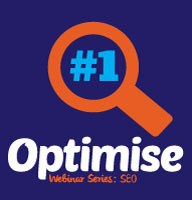-
Traffic
Get More Traffic
SponsoredLinX offers a number of different services to help drive more qualified traffic to your website. Google Ads Management Search Engine Optimisation Microsoft Ads Facebook Advertising Google Ads Mobile“SponsoredLinX are a rarity in today’s market place, they promise a lot but deliver more. Our business has grown by over 400% in one month; we are amazed at the difference they have made.”
-
Conversion
Convert More Leads
Our second step is making sure that your website is able to convert the traffic you receive into leads for your business. Optimising your website to convert more leads is important to a profitable campaign. Web Development Convertopages Do It For Me eCommerce“I just want to say thank you! The changes that you have applied in our AdWords campaign have definitely seen an improvement on click quality and sales for HippityHop.”
-
Retention
Retain Your Customers
As you build up a customer base you need to make sure to keep engaged and retain your relationship. Facebook Management LinX App“SponsoredLinX fully redesigned our main company website with a fresh, clean and professional look. The ‘Google friendly’ web design were part of the fantastic ongoing service we received.”
SEO is Getting Back to Local Roots
 How has search evolved? It’s a much broader and deeper question than it looks on the surface. For example, here’s guessing you have most likely heard of the term ‘Google it’. The landscape for marketers and business owners around the world continues to change as we watch the giant search engine Google source and list the staggering amount of information which is now available to us. So how can you keep up with the hundreds of algorithm changes to ensure that the right people are finding your business? It seems like a daunting task at first, but it’s the exact reason why we are launching our ‘SEO: Explore More Optimise Webinar Series’ for 2015.
How has search evolved? It’s a much broader and deeper question than it looks on the surface. For example, here’s guessing you have most likely heard of the term ‘Google it’. The landscape for marketers and business owners around the world continues to change as we watch the giant search engine Google source and list the staggering amount of information which is now available to us. So how can you keep up with the hundreds of algorithm changes to ensure that the right people are finding your business? It seems like a daunting task at first, but it’s the exact reason why we are launching our ‘SEO: Explore More Optimise Webinar Series’ for 2015.
Our first webinar in the series is going to inspect the relatively unheard term of Local SEO. What is it? How is it different to regular SEO? Does your business even need it? We’ll be answering all these questions and more. To kick off the launch of this webinar we’ll be posting a series of blog posts in support of the content we’ll be discussing in the webinar at the end of the month.
Search Engine Optimisation (SEO) is essentially a set of practices people, be it business owners to marketers, use and follow to have their information rank well, organically (not Pay-per-Click) in search engines, so that when people enter a search term in relation to the information someone wants to rank for, it can be easily accessible.
Google is always looking at the user experience, but in particular it’s now focusing on the user mobile experience and, this has a large part to do with why Local SEO is so important for your business. We have said it before and we’ll say it again; internet search is now mobile, fact. People use search via their mobile devices commonly to find a business, service or product with in a close vicinity to where they are. Local SEO helps your business to rank in these listings. For example, if someone is searching for a plumber, they won’t only use the search term ‘plumber’. Instead, they will use the keyword ‘plumber’ but they will also use their suburb, such as ‘Annerley’, or ‘Paddington’.
Local SEO refers to the practice of improving your position for local results in organic search. For Google this is the Google Maps/Google My Business section of results (which we will discuss in further detail later in the blog). This ties in with Google’s mission by connecting people looking for local businesses, with local businesses, that can assist them. And what is Google’s mission, you ask? It goes a little something like, “Google’s mission is to organise the world’s information and make it universally accessible and useful”. Though as we become ever more used to our reliance on the internet, and even to an extent our reliance on Google, there clearly has to be a democratic way of listing the world’s information when people search for it.
Local SEO results largely relies on the Google platforms Google + and Google My Business. Google+ is Google’s social media platform but it is more focused on the sharing of professional information than a platform like Facebook, for example. Google My Business is the part of Google+ that businesses can use to make themselves more visible to people searching online and then interact with those people through the Google+ social media platform.
A Google+ page is a personal profile an individual uses to interact with others online. A Google My Business page is like a specialised version of that with features that would be useful for businesses, containing information such as contact details, opening hours and a map pin shown within Google Maps. One of the main features businesses are interested in is the ability to appear in the maps listings section of Google organic search. A Google+ profile isn’t able to achieve any of this.
A Google My Business page is generally linked to the business’ website and Google takes this into account. If you have a great site that ranks highly in the organic search results, this gives you a lot of credibility when trying to rank highly for Google My Business. Being active on Google My Business also sends signals to Google that your business is active in the online space which in turn helps your organic rankings.
While traditional methods of marketing and advertising for Australian SMEs continues to dwindle, the Google +/Google My Business platform continues to grow as an appealing option. Like many services offered by Google it is completely free. Although it can be time consuming to set up there are no costs for running the page and if a business ranks highly in the maps listings they are likely to get a significant amount of traffic from people searching for a local business.
If you haven’t already got Google My Business up and running for your enterprise, ensure you get in touch with us if you have any queries or questions. We’re here to help and would love to hear about your business plans for the Google platform. You can visit our website or give us a call and speak to our Digital Strategy team on 1300 859 600. Please also register for our first webinar in the series. We’ve titled it ‘Local SEO – The Uncharted Territory’ and we can’t wait to share it with you.

